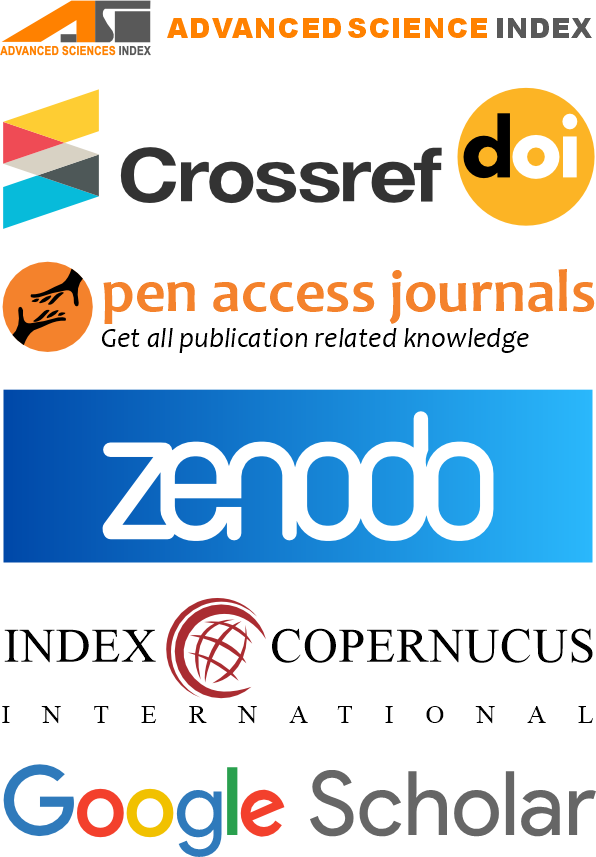Impact of Psychological Capital on Work Performance of University Teachers in the Province of Khyber Pakhtunkhwa
DOI:
https://doi.org/10.62997/rl.2024.31027Keywords:
Psychological Capital, Work Performance, HEIsAbstract
The current study focuses on how university teachers' work performance in Higher Education Institutions (HEIs) is influenced by psychological capital. The current study is correlational in nature because the positivist research approach was adopted. A sample of 335 teachers was selected through a stratified sampling technique. The questionnaire comprised two sections: the first section focused on respondent demographics, while the second section contained items related to psychological capital and work performance commitment, measured on a 5-point Likert scale. Descriptive and Inferential Statistics were applied. The study concluded that positive relationship was found between Psychological Capital (PsyCap) and teachers’ Work Performance (WP) in Khyber Pakhtunkhwa HEIs. The study also came to the conclusion that PsyChe significantly influenced employees’ performance at work. Additionally, employees' resilience, optimism, and adaptability have improved the quality of their work performance. The good psychological capital of teachers has improved their performance at work. The study recommended that good and healthy environment may be implemented in the HEIs which boost the psychological capital of teachers, which ultimately influenced their performance.
References
Abbas, M., & Raja, U. (2015). Impact of psychological capital on innovative performance and job stress. Canadian Journal of Administrative Sciences / Revue Canadienne des Sciences de l'Administration, 32(2), 128-138. https://doi.org/10.1002/cjas.1314
Amin, M., & Atta, M. A. (2013). Teachers’ Job Performance at Secondary Level in Khyber Pakhtunkhwa, Pakistan. Gomal University Journal of Research, 29(2), 100-104. http://www.gujr.com.pk/index.php/GUJR/article/view/388
Anglin, A. H., Short, J. C., Drover, W., Stevenson, R. M., McKenny, A. F., & Allison, T. H. (2018). The power of positivity? The influence of positive psychological capital language on crowdfunding performance. Journal of Business Venturing, 33(4), 470-492. https://doi.org/10.1016/j.jbusvent.2018.03.003
Avey, J. B., Nimnicht, J. L., & Graber Pigeon, N. (2010). Two field studies examine the association between positive psychological capital and employee performance. Leadership & Organization Development Journal, 31(5), 384-401. https://doi.org/10.1108/01437731011056425
Harms, P. D., & Luthans, F. (2012). Measuring implicit psychological constructs in organizational behavior: An example using psychological capital. Journal of Organizational Behavior, 33(4), 589-594. https://doi.org/10.1002/job.1785
Hartini, H., Fakhrorazi, A., Jasmi, M. F., Fernando, Y., & Khamis, K. A. (2024). Social intelligence and individual work performance: A mediator model of Islamic work ethics. International Journal of Business Innovation and Research, 34(2), 235-257. https://doi.org/10.1504/ijbir.2024.138957
Jacobs, P. A., Tytherleigh, M. Y., Webb, C., & Cooper, C. L. (2007). Predictors of work performance among higher education employees: An examination using the ASSET model of stress. International Journal of Stress Management, 14(2), 199-210. https://doi.org/10.1037/1072-5245.14.2.199
Jeffri, N. F., & Awang Rambli, D. R. (2021). A review of augmented reality systems and their effects on mental workload and task performance. Heliyon, 7(3), e06277. https://doi.org/10.1016/j.heliyon.2021.e06277
Kelidbari, H. R., Fadaei, M., & Ebrahimi, P. (2016). The role of ethical leadership on employee performance in Guilan University of Medical Sciences. Procedia - Social and Behavioral Sciences, 230, 463-470. https://doi.org/10.1016/j.sbspro.2016.09.058
Lewis, S. (2011). Positive psychology at work: How positive leadership and appreciative inquiry create inspiring organizations. John Wiley & Sons.
Luthans, F., & Youssef-Morgan, C. M. (2017). Psychological capital: An evidence-based positive approach. Annual Review of Organizational Psychology and Organizational Behavior, 4(1), 339-366. https://doi.org/10.1146/annurev-orgpsych-032516-113324
Luthans, K. W., Lebsack, S. A., & Lebsack, R. R. (2008). Positivity in healthcare: Relation of optimism to performance. Journal of Health Organization and Management, 22(2), 178-188. https://doi.org/10.1108/14777260810876330
Luthans, K. W., Luthans, B. C., & Chaffin, T. D. (2018). Refining grit in academic performance: The Mediational role of psychological capital. Journal of Management Education, 43(1), 35-61. https://doi.org/10.1177/1052562918804282
Makki, A., & Abid, M. (2017). Influence of intrinsic and extrinsic motivation on employee’s task performance. Studies in Asian Social Science, 4(1), 38. https://doi.org/10.5430/sass.v4n1p38
Mathe, K., & Scott-Halsell, S. (2012). undefined. Journal of Human Resources in Hospitality & Tourism, 11(4), 354-372. https://doi.org/10.1080/15332845.2012.690684
Mensah, J., & Amponsah-Tawiah, K. (2016). Mitigating occupational stress: The role of psychological capital. Journal of Workplace Behavioral Health, 31(4), 189-203. https://doi.org/10.1080/15555240.2016.1198701
Novitasari, D., Cahya Kumoro, D. F., Yuwono, T., & Asbari, M. (2020). Authentic leadership and innovation: What is the role of psychological capital? International Journal of Science and Management Studies (IJSMS), 27-42. https://doi.org/10.51386/25815946/ijsms-v3i5p103
Peterson, S. J., & Byron, K. (2007). Exploring the role of hope in job performance: Results from four studies. Journal of Organizational Behavior, 29(6), 785-803. https://doi.org/10.1002/job.492
Rego, A., Marques, C., Leal, S., Sousa, F., & Pina e Cunha, M. (2010). Psychological capital and performance of Portuguese civil servants: Exploring neutralizers in the context of an appraisal system. The International Journal of Human Resource Management, 21(9), 1531-1552. https://doi.org/10.1080/09585192.2010.488459
Rehman, F. U., Bin Md Yusoff, R., Bin Mohamed Zabri, S., & Binti Ismail, F. (2018). Impacts of psychological capital on the ethical behavior of teachers: A case of educational sector in Pakistan. MATEC Web of Conferences, 150, 05032. https://doi.org/10.1051/matecconf/201815005032
Robbins, J. M., Ford, M. T., & Tetrick, L. E. (2012). Perceived unfairness and employee health: A meta-analytic integration. Journal of Applied Psychology, 97(2), 235-272. https://doi.org/10.1037/a0025408
Walsh, J. P., Weber, K., & Margolis, J. D. (2003). Social issues and management: Our lost cause found. Journal of Management, 29(6), 859-881. https://doi.org/10.1016/S0149-2063_03_00082-5
Yee, L. C. (2018). An analysis of the relationship between job satisfaction and work performance among academic staff in Malaysian private universities. Journal of Arts & Social Sciences, 1(2), 64-73.






